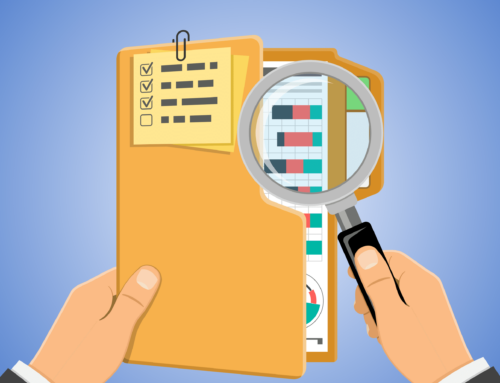Fraud in healthcare has run rampant in recent years, as evident by two incidents in which healthcare organizations billed insurance companies for things patients never received. In one incident, a New Jersey pharmacy admitted to conspiracies to defraud benefits providers, including Medicare and Medicaid, of $65 million for medications never provided to patients. In the other fraud scheme, Medicare patients were billed an estimated $2 billion for urinary catheters they never received.
Pharmacy Fraud and Kickback Scheme
In early February 2024, the co-owner and the administrator of a New Jersey pharmacy admitted to defrauding insurance providers, including Medicare and Medicaid. They also violated the Anti-Kickback Statute, paying bribes and kickbacks to healthcare providers and their staff in exchange for prescription referrals. Bribes included payment by check, wire transfer, cash, and expensive meals.
The husband and wife schemers plead guilty in Trenton federal court to conspiring to commit healthcare fraud. The husband also pleaded guilty to conspiring to violate anti-kickback laws. Others were also charged in a superseding indictment and are awaiting sentencing.
U.S. Attorney Philip R. Sellinger commented, “These defendants admitted taking part in an elaborate and years-long scheme to use their specialty pharmacy to rip off Medicare, Medicaid and private insurers. They paid bribes, kickbacks, set up phony jobs in doctors’ offices. They took reimbursements for medications that never dispensed and falsified records, defrauding insurers via pharmacy benefits managers of more than $65 million. Protecting the integrity of our healthcare system at all levels is a top priority for this office. We will continue to work relentlessly with our enforcement partners to ensure those who commit healthcare fraud or undermine the integrity of medical decision-making through bribes and kickbacks face justice, like the defendants in this case.”
“The additional pleas in this investigation demonstrate that HHS-OIG will continue to hold accountable individuals who exploit federal health care programs for their own greed,” Naomi Gruchacz, Special Agent in Charge with the U.S. Department of Health and Human Services, Office of Inspector General (HHS-OIG), said. “Pharmacy employees who submit fraudulent claims to Medicare and Medicaid and bribe medical providers to induce prescriptions put health care benefits for vulnerable populations at risk.”
The defendants will be sentenced on June 13, 2024, and could face up to 10 years in prison for the fraud count and 5 years for the illegal kickbacks. Additionally, each count is punishable by a $250,000 fine, or twice the gross loss or gain from the scheme.
Urinary Catheter Medicare Fraud
In August 2023, angry phone calls flooded the Pretty in Pink Boutique in Tennessee with complaints that their insurance companies were billed thousands of dollars for urinary catheters that they didn’t ask for and weren’t received.
After receiving so many complaints, the leaders of the boutique posted a statement on their website reading, “We have received dozens of calls from people who received fraudulent claims made by Pretty In Pink Boutique, Inc. WHILE WE SHARE THE SAME NAME, THIS COMPANY IS COMPLETELY UNAFFILIATED WITH US. There are at least FIVE companies registered with Medicare that operate with the name Pretty In Pink Boutique.”
“We have reported the calls we are receiving to Medicare, and we have been working with callers to try to figure out exactly who is filing these claims so that we can communicate anything we know to Medicare. FRAUDULENT CLAIMS ARE BAD FOR ALL OF US, AND WE ARE ON YOUR SIDE.”
According to reports, seven companies submitted fraudulent claims to Medicare over two years, amounting to an estimated $2 billion. While the FBI’s public affairs office could not confirm or deny the existence of an investigation, one healthcare group discovered that they went from billing 14 patients for catheters to billing almost 406,000 patients.
The nonprofit organization National Association of ACOs (NAACOS) uncovered the Medicare fraud scheme. While the seven companies in question are accredited with Medicare for reimbursement, the accreditations were often linked to people who no longer worked with the company or had sold it the prior year.
Clif Gaus, CEO of NAACOS, stated, “We’ve just never seen anything like this nationally. “Where do you get half a million beneficiary names and ID numbers? There has to be a breach somewhere in the health-care system.”
Meeting Medical Billing Compliance Standards
Medical billing compliance ensures that providers and administrators engage in ethical and accurate billing practices. The regulations surrounding medical billing compliance policy come from:
- Federal laws, such as the Health Insurance Portability and Accountability Act (HIPAA) and Affordable Care Act (ACA)
- State laws
- Medicare and Medicaid guidelines
- Health insurance policies
Failure to comply with medical billing compliance regulations can result in:
- Fines, penalties, imprisonment, or the loss of licensure
- Allegations of abuse and fraud
- Lost revenue
- Civil lawsuits
- Denials of Medicare, Medicaid, or private insurance claims
- Loss of community trust and reputation
Healthcare organizations should establish a medical billing compliance program defining all policies and procedures for identifying, reporting, correcting, and preventing legal or ethical violations.
Compliancy Group’s healthcare compliance tracking software enables organizations to implement policies, procedures, and training to prevent fraud. It also includes mechanisms to report suspected violations anonymously.








